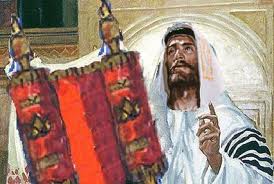
-20-08-2023 –
Twentieth Sunday in Ordinary Time
Gospel Text: Matthew 15:21-28
vs.21 Jesus left Gennesaret and withdrew to the region of Tyre and Sidon.
 vs.22 Then out came a Canaanite woman from the district and started shouting, “Sir, Son of David, take pity on me. My daughter is tormented by a devil.”
vs.22 Then out came a Canaanite woman from the district and started shouting, “Sir, Son of David, take pity on me. My daughter is tormented by a devil.”
vs.23 But he answered her not a word. And his disciples went and pleaded with him. “Give her what she wants,” they said “because she is shouting after us.”
vs.24 He said in reply, “I was sent only to the lost sheep of the House of Israel.”
vs.25 But the woman had come up and was kneeling at his feet. “Lord,” she said “help me.”
vs.26 He replied, “It is not fair to take the children’s food and throw it to the house dogs.”
vs.27 She retorted, “Ah yes, sir; but even house dogs can eat the scraps that fall from their master’s table.”
vs.28 Then Jesus answered her, “Woman, you have great faith. Let your wish be granted.” And from that moment her daughter was well again.
*******************************************************************
We have four sets of homily notes to choose from. Please scroll down the page for the desired one.
Michel DeVerteuil : Holy Ghost Priest, Specialist in Lectio Divina
Thomas O’Loughlin: Professor of Historical Theology, Uni of Nottingham
John Littleton: Director of the Priory Institute, Tallaght, Dublin 24
Donal Neary SJ: Editor of The Sacred Heart Messenger
****************************************
Michel DeVerteuil
Lectio Divina with the Sunday Gospels- Year A
www.columba.ie
General Comments
This Sunday’s gospel passage is in two sections,
– an introduction in verse 21.
– the main story in verses 22-28
To get the significance of verse 21 we must look at the preceding passage which tells of the Pharisees’ continued hostility to Jesus. It was because he was rejected by the religious leaders then that Jesus decided to “leave that place” and “withdraw” to a foreign environment, “the region of Tyre and Sidon”, ending up experiencing a radically new dimension to his mission. So often an experience of rejection leads to new possibilities being opened up. Our “region of Tyre and Sidon” turns out to be a place of new beginnings.
– Verses 22 to 28. This is another of the many stories of Jesus healing someone “tormented by a devil”. We can be creative in interpreting what this means. We think of the demonic forces which “torment” people and societies today – elitism in its many different forms, the desire to avenge old injustices, ruthless ambition. Many people are still “shouting after us” looking to be healed.
Christians have always found the story difficult to interpret because of Jesus’ seemingly harsh words to the Canaanite woman. Bible scholars have given various explanations to show that he was not as harsh as he seems to us today.
For some, it a question of translation. In their original language the words were Jesus’ symbolic way of explaining where he stood in his mission. He saw himself as “sent to the lost sheep of Israel”, meaning that he chose to start his life’s work among the people he lived with – an admirable approach for all who embark on a program of community renewal. Others see in Jesus’ words a form of gentle teasing that was common among the rabbis of the time; it would have amused and not given offense. For others again, Jesus was giving the woman an opportunity to express her faith – like teachers who ask seemingly naïve questions as a way of drawing out the best in their students.
These explanations seem to me rather complicated, however. I feel it is better not to go into the question at all, but simply to join Jesus in celebrating the faith of this wonderful woman – letting her remind us of people who have made a deep impression on us, as she did for Jesus. We remember the times when we too could not help exclaiming, “You have great faith”. Two things are significant about her: she was a woman and a “Canaanite ” – a foreigner. She belonged to two groups therefore who were considered inferior by the religious leaders of the day and so is representative of all those who by their greatness challenge the false values of our culture.
As a woman she can be linked with Mary of Magdala – both women were the first teachers of faith in the church. As a foreigner she opened a new era of evangelization- the first gentile to receive the blessings of Jesus’ ministry.
On both counts then, the “Canaanite woman” represents the countless people in the course of history who started off  as “outsiders” and eventually brought a new richness to the Church. We think of the so-called “pagan nations” of the first centuries – Rome, Greece and Ireland – which brought out new dimensions to the message of Jesus. We think today of the Church being renewed by the cultures of Africa, Asia, Latin America and the Caribbean.
as “outsiders” and eventually brought a new richness to the Church. We think of the so-called “pagan nations” of the first centuries – Rome, Greece and Ireland – which brought out new dimensions to the message of Jesus. We think today of the Church being renewed by the cultures of Africa, Asia, Latin America and the Caribbean.
Jesus celebrated the woman’s faith and the first Christian communities recorded the story. They are models for the church of all times, including our own, telling us that we must celebrate the great men and women who by the example of their lives have shown up our petty prejudices.
The woman’s concern is not for herself but entirely for her daughter. In her selflessness she reminds us of the great women of our time.
– Caribbean mothers moving heaven and earth to get their children into a good school;
– Latin American mothers campaigning to find out the truth of their husbands’ “disappearances”;
– Women gathering at the gates of prisons to bring clothes or food to their relatives who have been arrested – guilty or not.
The “Canaanite woman” does not represent women only but all people who are passionately committed to a noble cause. All the various aspects of her faith are worth meditating on, starting from our experience of great people we have known. For example, she was unconcerned about what others thought of her – she “came out” and immediately “started shouting”. Committed people don’t mind making a nuisance of themselves.
Then there is the good humour which enabled her to turn Jesus’ harsh words to her advantage, while keeping her dignity intact: “I don’t mind being considered one of the house dogs since that means that I have a right to scraps from the children’s food”.
Turning our focus back to Jesus, we are touched by the extraordinary discretion of “may your wish be granted”. He makes no mention of the problem she faced – a model for an age when benefactors (including church members) tend to proclaim on the housetops and in great detail what they have done for others.
Scripture Prayer Reflection
Lord, you guide us in mysterious ways.
Sometimes we experience rejection and feel so deeply hurt
that we go away somewhere where no one knows us,
like Jesus withdrawing to the region of Tyre and Sidon.
But in your providence some Canaanite woman is there waiting for us,
to ask for our help, but also to give us a new understanding of faith.
Lord, we praise and bless you for our (Caribbean) mothers.
When their children are in need there is nothing that will stop them.
They will continue shouting no matter who cares; they will accept humiliation,
in fact they will see the humour in their situation,
but they will not rest until their wish is granted and their children are well again.
“He who has never praised is not fully human.” … St Alfonsus Liguori
 Lord, we Church leaders tend to think
Lord, we Church leaders tend to think
that we must always be in the role of teachers,
we must always be models for others.
Teach us to be humble like Jesus,
to recognise publicly the great faith of others
and to let them evangelize us.
“Nature has produced a common right for all but greed has made it a right for a few.” …St Ambrose, 4th century
Lord, forgive us people of this twentieth century,
that there are men and women who must be content to eat
scraps that fall from their masters’ tables.
Lord, there are times when we feel hurt by our Church community.
We feel we don’t belong at all, that the community is not there to look after us.
Don’t let us give in to discouragement or to bitterness.
Give us instead the faith of the Canaanite woman so that we can recognise that there are many scraps falling from the table that can nourish us, and our wishes can in fact be granted.
Lord, your Church has become narrow in its concerns:
– almost exclusively focused on the Western world;
– giving all its time and energy to the care of priests and religious.
But now the Church has heard the cry of other Canaanite women:
– people of third world cultures;
– oppressed minorities;
– lay people in need of spiritual guidance.
They have cried for liberation, hoping even for scraps that fall from the master’s table,
and their faith and perseverance have brought us a new understanding of the Church’s mission.
Lord, theology had become a cold abstract exercise.
Today it has become a matter of ridding society of its demons,
racism, unemployment and unjust debt.
Some find that this kind of passion is unseemly,
like the disciples pleading with Jesus to get rid of the Canaanite woman
because she was shouting after them.
But Jesus is with us and he knows that people of faith must have their wishes granted.
*********************************************************
Thomas O’Loughlin
Liturgical Resources for the Year of Matthew
www.columba.ie
Introduction to the Celebration
 When we gather each Sunday to celebrate being the People of God, we address Jesus as ‘ our Saviour’. But we often forget that the basic image of ‘saviour’ is that Jesus came to bring healing. We are addressing Jesus as the one we look to for healing, health, and wholeness. This aspect of the ministry of the Christ is brought out in today’s gospel when a woman calls on him as ‘Lord’ and ‘Son of David’ asking him to heal her daughter.
When we gather each Sunday to celebrate being the People of God, we address Jesus as ‘ our Saviour’. But we often forget that the basic image of ‘saviour’ is that Jesus came to bring healing. We are addressing Jesus as the one we look to for healing, health, and wholeness. This aspect of the ministry of the Christ is brought out in today’s gospel when a woman calls on him as ‘Lord’ and ‘Son of David’ asking him to heal her daughter.
So just like that woman long ago who asked Jesus for healing, during our gathering today we shall keep our need for healing in mind in our prayer.
We all need, in one way or another, healing for our bodies when afflicted with pain, we need healing for our minds when they are distressed or embittered, and we need healing for our spirits which become damaged by sin. To encounter Jesus is to encounter the Father’s gift of wholeness. Let us pray now that we shall share in it through this Eucharist.
Homily Notes
1. There are two basic facts that stare us in the face every day.
First, we know that there are areas of our lives which are just a mess, they are not as they should be, they are awry, they are somehow a problem to us. It may be a physical affliction, it may be a cause of stress, it may be a memory that haunts us, it may be a relationship that has broken down. Whatever it is, we know that we would love to have it sorted out, mended, fixed, renewed.
Second, we are all aware that our lives are fractured, broken up into little pieces that do not seem to mesh with one another. We want to live peaceful lives, yet we are caught up in various stressful pursuits. There are conflicts between what we would like to do and what we actually do. There are stresses between the demands of family and work. There are demands from various quarters that seem to contradict one another.
2. This need for healing and renewal takes on many expressions. Some people try to ignore it, others seek out various miracle cures, other seek out alternative medicine, lifestyles, or exotic New Age spiritual paths. We as Christians see it as a cry from within our deepest selves that we are incomplete without seeking God. ‘You, a God, have made us for yourself, and our hearts are ever restless until they rest in you,’ prayed St Augustine, while generations of believers have prayed that God would show them his face, turn his face toward them, and show them his mercy.
3. Every occasion of human sickness should somehow, in some way, and to some extent remind us that we are not self-sufficient, that we need others, need forgiveness and mercy, and need God’s love and mercy.

4. The awareness of the fractured nature of our lives, of our brokenness, is what provides the basis for the ‘wholeness’ industry which promises a ‘holistic approach’ to this, that, and the other. But the fact that there are people cashing in on this human need should not cause us to forget that there is a really human desire for wholeness, to bring the various parts of our lives into connection, and to give our lives direction. This quest for wholeness has been an aspect of the Christian search for holiness down the centuries. Part of our wisdom is that this brokenness is somehow related to sin and so a first step towards a more integrated life is an acknowledgment of our sins and a willingness to accept forgiveness from God. Another part of our wisdom is that wholeness cannot be attained without prayer and care for others.
5. Lastly, while we seek healing and wholeness, we must be suspicious of ‘instant solutions.’ Healing comes in many forms, but it is usually slow, and always partial. Wholeness is never ‘just there for the picking,’ and its pursuit is the lifelong quest. Again, as believers in the God of infinite mercy, we know that complete healing and complete wholeness will only be ours when we enter into the fullness of life in the divine presence.
This last point seems rather dull given that we are bombarded with advertising promising us both healing and wholeness in a simple package: all that stands in our way is our willingness to pay for it! In the face of such illusions, bursting the bubble may seem churlish, but it is good news.
****************************************************************
John Litteton
Journeying through the Year of Matthew
www.Columba.ie
Gospel Reflection
There was a long history of conflict between the Israelites and the Canaanites. Over the years, the Canaanites were defeated and most of them fled the land. Some of them settled in Tyre and Sidon (Lebanon and Syria). It was here that Jesus met the woman in today’s gospel reading.
Why, we may ask, did Jesus travel to this Gentile region, especially given the turbulent historical background? The most likely reason is that he had been in conflict with the Pharisees and other religious leaders, and he wanted to go away for a while, not least because he did not want the trouble with his enemies to escalate. That is one of the practical reasons for his venturing into Gentile territory at this time.
 Jesus’ spiritual and religious reasons seem clear. The Jewish leaders were battling with him, were jealous of him and were, in essence, rejecting him. So he turned his attention to the Gentiles — those who were not Jews. He entered Gentile territory at the very time the Jewish leaders rejected him, and a Gentile woman publicly recognised his power and authority. The contrast must have been clear to his followers.
Jesus’ spiritual and religious reasons seem clear. The Jewish leaders were battling with him, were jealous of him and were, in essence, rejecting him. So he turned his attention to the Gentiles — those who were not Jews. He entered Gentile territory at the very time the Jewish leaders rejected him, and a Gentile woman publicly recognised his power and authority. The contrast must have been clear to his followers.
The woman cried out to Jesus: ‘Sir, Son of David, take pity on me. My daughter is tormented by a devil’ (Mt 15:22). Her words are significant. She was aware of the historical animosity between the Jews and the Canaanites. Nevertheless, she expressed her belief in Jesus as the promised Messiah. It was astonishing that she should make that kind of acknowledgement, notwithstanding her anxiety to have her daughter healed.
At first Jesus was silent, perhaps testing her perseverance. She was not found wanting, following him and pleading with him.

Jesus, Jewish Messiah
Jesus’ silence was educational. He wanted his disciples and the woman to understand fully that he was the Son of David, the Messiah. The kingdom had to be offered to the Jews first, in fulfilment of the Old Testament prophecies.
However, the woman humbly knelt before Jesus and begged:
‘Lord, help me’ (Mt 15:25).
Jesus continued to test her by reminding her about the historic enmity between her people, the Canaanites, and the Chosen People, the Israelites. He told her that she was asking him to give privileges intended for the children (the Jews) to the house-dogs (the Gentiles).
The woman was not offended. She knew that the long awaited Messiah was a Jewish Messiah and that the Jews were the Chosen People. But she quipped that even the dogs ate the crumbs that fell from their master’s table. In other words, although God’s mercy is first for the Jews, surely some of it can be spared for the Gentiles. The Canaanite woman’s words were a manifestation of real faith in Jesus, and were in stark contrast to the lack of faith of the Jewish leaders who rejected him. Jesus rewarded her faith by healing her daughter.
The account of Jesus’ encounter with the Canaanite woman teaches us about the grace of God and about the trusting faith that is appropriate when we experience suffering. But there is another lesson. We are challenged to bring the message of God’s saving grace to the whole world.
For meditation
Woman, you have great faith.
Let your wish be granted. (Mt 15:28)
**********************************************************
Fr Donal Neary, S.J
Gospel Reflections for the Year of Matthew
www.messenger.ie
Fighting for her child
She was a woman like many. She would fight for her child, so she took on Jesus, the best known religious figure around. Like someone taking on the minister for health or children over a medical card for a chronically ill child, and not letting them off the hook. Jesus was testing her. He saw faith, but he wanted everyone else to see it. So he told her she didn’t fit into the local religious sphere because she was foreigner, like an asylum seeker or a refugee. She knew she fitted into the heart of Jesus simply because she was the mother of a sick child and believed he could help.
 Even if he would cure everyone, maybe he would come back to her at the end. Jesus went further – he cured her child and praised her faith.
Even if he would cure everyone, maybe he would come back to her at the end. Jesus went further – he cured her child and praised her faith.
She is another of the unnamed people of the gospel. Like the woman of Samaria, the rich young man, the thief on Calvary – she is herself, and she is all of us. She is everyone, man and woman, of faith.
Faith in a surprising God who, in Jesus, his Son, never says no to goodness. Faith that keeps us energetic and alive, not tired, in soul as well as body.
Remember your feeling of gratitude for the children of your family.
Lord, I believe.Strengthen my faith.
**********************